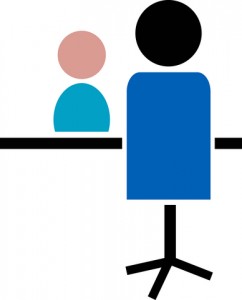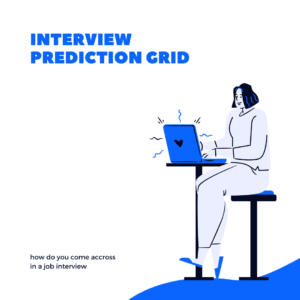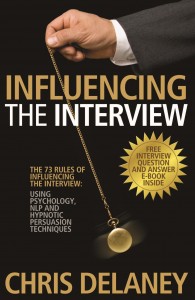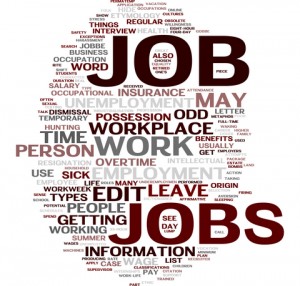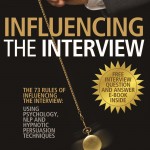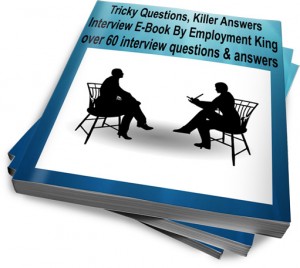Psychology in Job Interviews: Turn Your Interviewer Into Your Puppet
Psychology is the study of the human mind and human behavior, which means if you understood the psychology of job interviews you would be offered more jobs BECAUSE you will turn your interviewer into your puppet. Imagine you new how to influence the job interview; psychological interview tips will teach how to control the interviewer, how make them dance to your tune and how to get any job you want – no wonder employers don’t want you to know these dangerous techniques.
The following psychology techniques will give you the edge of other interview applicants. Be aware these techniques are not for the faint harted, they will get you more job offers but kill your conscience.
7 Psychological Interview Techniques – Take Control of Your Interviewer
It Only Takes Second to Make an Impression

We are hard wired to stereotype. When you first meet someone or when the interviewer first see you, your unconscious quickly processes everything you see and hear in a matter of seconds, and puts you into a category. This is why you need to look smart and act confident because in the first 10 seconds the interviewer will decide if they like you or not! Throughout the interviewer they will filter your interview answers with their “like” or “dislike” filters. And we all know once you have decided to dislike someone it is hard for that person to change their mind, this is because the interviewer will look for evidence to back up your initial opinion.
For example, if you meet your friends boss, and you initial think that’s he’s a bit of a flirt before he even opens his mouth, you will start to look for signs that he is a flirt and you will take what he say’s and ask “did he say that because he’s a flirt?” We don’t like to be wrong, so humans will look for evidence to back up our opinions.
Don’t Fake It
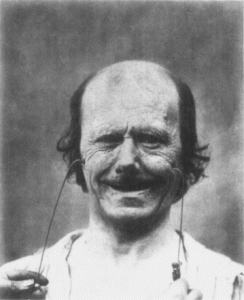
Smiling can increase likeability, but unconsciously we know if your smile is real or fake and once your fake smile has been uncovered the interviewer will have a less favorable opinion of you.
To create a real smile, remember a time that you went to a party and seen an old friend that you haven’t seen for many years. Imagine you were there now, and see the friend from your own eyes, see what you can see, hear what you can hear and feel how you felt. Your smile will automatically come to your face, and it this true smile that you want to show to the interviewer.
Control the Way People Perceive You.

People like happy, confident and bubbly people. To come across this way all you need to do is smile. Have you ever seen a baby smile? It’s hard to resist, if the baby smiles, you want to smile, don’t you? Your probably already smiling now just at the thought of a baby smile. Confident people talk with their hands and are open at using facial expressions, because this is a natural way for us to communicate. Being friendly, open, smiley and happy will have a positive psychological impact on your interviewer.
Big Heads Will Only Fall Over

We all hate bigheads and show off’s. So if you’re the type of interviewee who likes to show off, say good bye to the job offer. In the job interview you need to associate yourself with positively and good emotions. By praising the company, complimenting the interviewer and generally showing enthusiasm the interviewer will associate you with the good feelings they are having, as the praise will make the interviewer feel good, as they feel good they associate this emotion with you, saying “I like this guy, I have a great gut feeling about him”
The Athletic Interview

Top athletes, as we seen at the recent London Olympics are performing at there best through the technique of visualisation. As explained in the influencing the interview book, using mental imagery will boost your performance. Athletes will visulise themselves performing at their optimum, being successful and winning their race. Interviewees can also use this techniques to become more confident, to perform at there best and to overcome any hurdles, by visualizing themselves winning job interviews. Your subconscious doesn’t know the difference between a real experience and an imagine experience which is why dreams are so powerful, you sometimes wake up and don’t if the dream was real or not. This means that your memory will remember feeling positive at a job interview, so next time you attend a real job interview you will automatically remember these confident interview feelings.
Story Time, Not Snorey Time
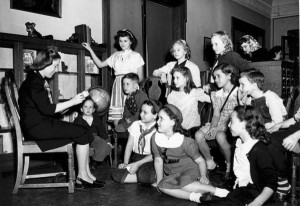
We have story telling embedded into our consciousness, at primary school we are told stories and metaphors as part of our learning process. In the days gone by, man sat around camp fires shared wisdom through the use of stories. So it is obvious that we all like stories and if you can add a bit of suspense to your interview answer story you will grip the listener – the interviewer.
Language That Influences

We all take in information differently through our senses (Visual, kinesthetic or Auditory) Through brain scans we have seen that a visual person will have a large visual lobe then say a auditory person. People will tell you how they process information vie the words they use visual people will use words such as see, visualize, sight, observe, picture. Kinesthetic will use words including get a grip, touch, grasp, cold, gut feeling and auditory people may use the following words hear, sound, louder, tune, that rings a bell. If you use the words the employer filters information with then your answers will be more understood.
Evidence has highlighted that interviewers will forget a large amount of the information given by the interviewer, with some interviewers believing one interviewee said one thing when in reality of different interviewee said it. Two interviewers who interview the same person at the same time, will compare notes only to find that their answers and opinions of the person vary – this means you need to ensure that throughout your interview, your interview answer, your key selling points need to be fully understood by the interviewer and this is the key goal of any interviewee.
If you enjoyed reading this article you will also enjoy reading:

